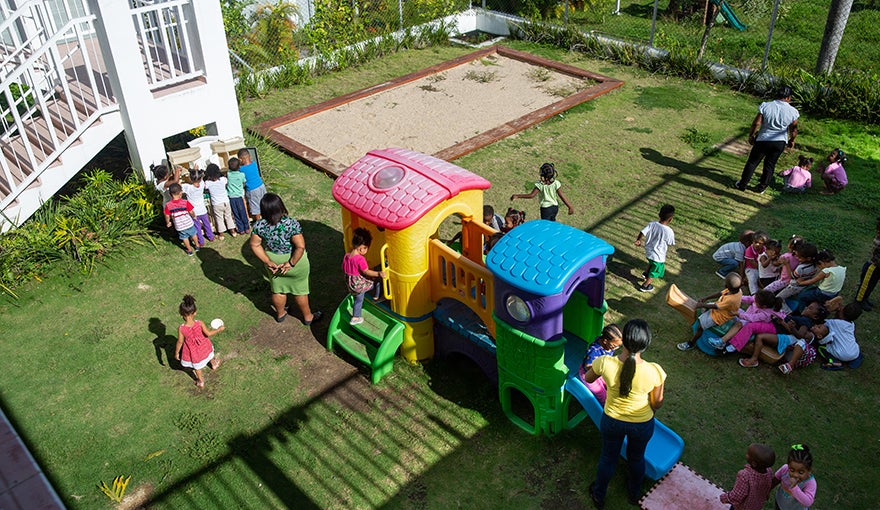Early childhood education is essential. There is abundant international evidence on its positive effects on variables such as educational attainment or salary when children enter the labor market as adults. Building a solid foundation in boys and girls from early childhood supports the sustainable development of a country, in addition to promoting equity.
In the last decade, the Dominican Republic has significantly increased its public investment in early childhood education. This has translated into an increase in access to early childhood education from 38% in 2011 to 59% in 2020. The quality of early childhood education is currently a hallmark of educational policies and reforms in Latin America and the world.
The great challenge for the country now is to maintain a minimum level of quality and a sustained increase in access in early childhood education. This quality is the product of the pedagogical practices that occur in classrooms since they are fundamental in promoting children's learning.
Since 2015, the Dominican Government has worked to strengthen its national system for measuring the quality of early childhood education , specifically through the evaluation of the quality of pedagogical practices in the classrooms that serve children 3 to 5 years of age. As part of this effort, the National Institute for Comprehensive Early Childhood Education (INAIPI) with the support of the Dominican Institute for Educational Quality Evaluation and Research (IDEICE) carried out pilot observations in classrooms using the TEACH ECE tool, with support from the World Bank.
A Tool for the Future of Teaching
Teach ECE is a classroom observation tool focused on children between 3 and 6 years of age. This tool was developed by the World Bank and is free, freely accessible, and can be used at scale. Its main objective is to measure the quality of educational processes within classrooms.
The design of the tool is based on research on quality teaching practices internationally. Each country adjusts the instrument to its cultural context. The Teach ECE results provide a detailed diagnostic of the pedagogical activities of teachers and can be used as an input to support teacher professional development.
The pilot project was carried out in the Dominican Republic in 2019, 2021 and 2022. During these three years, 30 early childhood education classrooms were observed, with approximately 60 educators and 750 children between 4 and 5 years of age.
The project was implemented by collaborators from INAIPI and IDEICE, who, after being trained, carried out the evaluation of pedagogical practices and prepared the final report of the results, which included the areas where pedagogical practices needed to be reinforced.
The results indicated that the most effective practices were found in providing a supportive learning environment and positive behavioral expectations , while the least effective practices were found in how the educational agent and educational assistant promote socioemotional skills in children.
The process of applying this tool has brought with it useful reflections and has contributed to creating a consensus of early childhood experts on the usefulness of tools of this type to monitor the quality of educational activities in ECE classrooms and to support educators in improving their pedagogical practices.
A fundamental aspect to create this consensus has been workshops held with stakeholders on the results of the application of TEACH ECE.
In April 2022, more than 40 early childhood policymakers met to discuss the application of this tool during the last three years in the country. They unanimously expressed its value in accurately measuring pedagogical practices, in addition to promoting the development of continuous quality improvement processes in classrooms.
Likewise, the urgency of addressing the socioemotional skills of children and educators who have been affected by the COVID-19 pandemic and whose well-being has been seriously affected was discussed. The need is now visible and more urgent for educators to have additional support systems to improve their pedagogical practices.
*We would like to thank Mónica Yañez-Pagans for her collaboration in the preparation of this Blog.






Join the Conversation